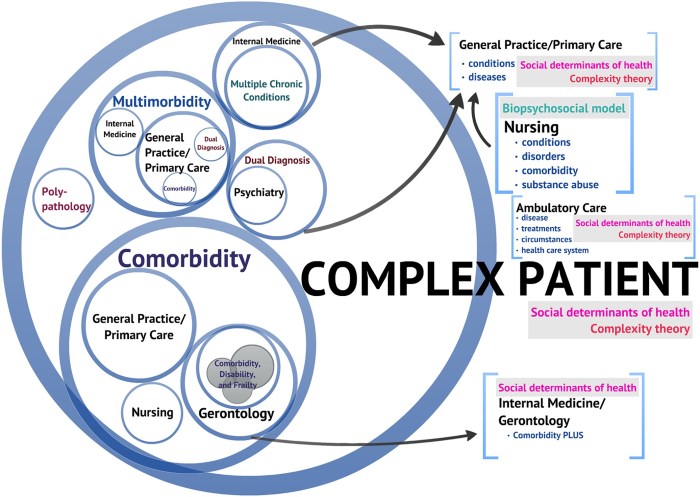Complex patient case shadow health emerges as a pivotal topic in the healthcare arena, inviting us to delve into the intricacies of managing complex patient cases with the aid of Shadow Health simulation. This immersive platform provides a transformative approach to nursing education, empowering students to navigate the complexities of real-world patient care.
Shadow Health simulation replicates the dynamic environment of clinical practice, enabling students to assess and manage patient cases that mirror the complexities encountered in actual healthcare settings. This innovative tool offers a safe and controlled environment for students to hone their clinical reasoning skills, make informed decisions, and implement evidence-based interventions.
Patient Case Complexity
Patient case complexity is a measure of the difficulty in managing a patient’s condition. Several factors contribute to case complexity, including the number of comorbidities, the severity of the patient’s symptoms, and the patient’s overall health status.
Patients with complex cases require more time and resources to manage than patients with less complex cases. They may also be at a higher risk for complications and adverse events.
Examples of complex patient cases include patients with multiple chronic conditions, patients with end-stage organ failure, and patients with severe mental illness.
Challenges Associated with Managing Complex Patient Cases, Complex patient case shadow health
- Increased risk of complications and adverse events
- Greater need for time and resources
- Difficulty in coordinating care among multiple providers
- Increased risk of patient dissatisfaction
Shadow Health Simulation
Shadow Health is a virtual patient simulation that allows students to practice managing patient cases in a safe and controlled environment.
Shadow Health can be used to assess student performance in managing complex patient cases. The simulation provides students with feedback on their decisions and allows them to learn from their mistakes.
Best Practices for Using Shadow Health in the Classroom
- Use Shadow Health to supplement traditional clinical experiences.
- Provide students with clear instructions and expectations.
- Use Shadow Health to assess student performance.
- Use Shadow Health to provide students with feedback on their decisions.
Nursing Interventions
Nurses play a vital role in managing complex patient cases. They provide direct care to patients, assess their needs, and develop and implement care plans.
The following nursing interventions are effective in managing complex patient cases:
- Comprehensive assessment
- Patient education
- Medication management
- Symptom management
- Coordination of care
Interdisciplinary Collaboration

Interdisciplinary collaboration is essential for managing complex patient cases. Different healthcare professionals have different skills and expertise, and by working together, they can provide the best possible care for patients.
Examples of how different healthcare professionals can work together to improve patient outcomes include:
- Physicians and nurses working together to develop and implement care plans.
- Social workers and case managers working together to provide support and resources to patients and their families.
- Pharmacists and nurses working together to manage medication therapy.
Challenges Associated with Interdisciplinary Collaboration
- Communication barriers
- Differences in professional culture
- Lack of trust
Strategies for Overcoming Challenges to Interdisciplinary Collaboration
- Establish clear communication channels.
- Foster a culture of respect and trust.
- Provide opportunities for interdisciplinary education.
Patient Education: Complex Patient Case Shadow Health

Patient education is an essential component of managing complex patient cases. Patients need to understand their condition and treatment plan in order to make informed decisions about their care.
Nurses play a vital role in providing patient education. They can:
- Explain the patient’s condition and treatment plan.
- Answer the patient’s questions.
- Provide written materials about the patient’s condition.
- Refer the patient to other resources for information and support.
Tips for Effective Patient Education
- Use plain language.
- Be patient and answer the patient’s questions.
- Provide written materials about the patient’s condition.
- Refer the patient to other resources for information and support.
Detailed FAQs
What factors contribute to the complexity of a patient case in Shadow Health?
Factors include multiple comorbidities, polypharmacy, social determinants of health, and rapidly changing conditions.
How can Shadow Health be used to assess student performance in managing complex patient cases?
Shadow Health provides objective data on student performance, including decision-making, medication administration, and communication skills.
What are the most effective nursing interventions in managing complex patient cases?
Effective interventions include patient-centered care, interdisciplinary collaboration, evidence-based practice, and patient education.
